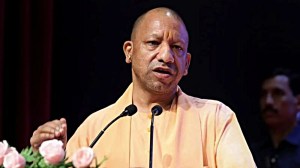Don’t be afraid of Dalal Street
As we go through exciting times I am, alas, temporarily in foreign shores and got traumatised by the bloodbath at Dalal Street on Black Mond...

As we go through exciting times I am, alas, temporarily in foreign shores and got traumatised by the bloodbath at Dalal Street on Black Monday, coming as it does in the wake of a more humane and inclusive verdict on the polity.
Unlike Delhi, my instinct is not to blame the poor operator, but to look at oneself, for I cannot forget that my panwallah at Ahmedabad religiously applies for IPOs and us Western Indian economists believe in a relevant radicalism which never scorns the market, but uses it strategically.
The share broker is not the villain of a Hindi movie. (S)he makes profits out of perverse expectations, which we, the establishment, generate. In my last article, I had contrasted Rajiv Gandhi pushing shallow tubewells in Bihar in an efficient manner, as against “smart” comments by the present lot in foreign media on the “cultural backwardness in the East”. In the draft Ninth Plan, I — planning minister — had put in a sentence saying that the constant income growth in UP and declining growth in Bihar is inconsistent with Indian development and has to be reversed. When a famous luminary elected from Bihar later used that sentence to score political brownie points, I remonstrated, but to no avail.
Let us be very clear. A people oriented development strategy is not anti-reform. My last piece was written and printed when Rajiv Gandhi was not fashionable since the elections were still on, but I was making the point that he was the first global reformer and believed in pushing technology and development for the people. Reform does not mean withdrawing from the market and twiddling your thumbs, as many of the policy makers of the ’90s did to devastating effect on India and its rural areas and its poor.
The best that can be said for the ’90s is that structural retardation did not take place but it was not accelerated as it should have been. Good education, good health, widespread agricultural growth and growth of artisan based employment is not anti-reform. It is the core of technology missions and decentralised development covering the last mile. It is reform. The message has to get across, not with a bludgeon but with finesse, that those who speculate against it may make a fast buck but will eventually suffer.
I am currently in Saltahillo, in Coahauila state, Mexico, and of course they love the Indian. They are planning a constitutional reform and Senor Fernando Elizando Barragan, advising the presidency is here, along with other luminaries. I talk of our third tier of government in the Constitution, but am much quieter on empowering them to help themselves. But now the South Africans take over and the Canadians and they are at the forefront of economic reform. They push education, health and agriculture with a tenacity that we forgot at the end of the eighties.
The South Africans particularly are superb. They remind me of the days when reform ideas were taken up as ideals. They talk of solidarity but build institutions, borrowing from us but also covering the last mile. Myron Peters, the executive manager of their Financial and Fiscal Commission, is there and having sent to our Finance Commission a paper on equity and efficiency, with a model developed at my request by Abhey Pethe and his colleagues at Mumbai University. I envy them for implementing what we are dreaming.
They have a detailed look at each local area, province and the national budget form the angle of the services they have promised their people. This is a part of a three-year profile which targets end results and not just money spent and they haul up the wasters. We used to attempt this but planning and missions became bad words in the name of structural adjustment. Peters is an admirer of Gandhiji and is happy at the statement I had made during the peace march after the riots from the Kochrab to the Sabarmati Ashram and promises to come to the land of his ancestors.
Then Norman Betts steps in. He is a former finance minister of Canada’s smallest and “very important province”, he says of New Brunswick and lays down the equalisation law. Every Canadian is entitled to the required facilities of health, education, roads and so on. The provinces are entitled to Equalisation Grants. Like all state luminaries, he complains, but it is obvious the system is working.
We are poor, but I know that is not the problem. During the elections, the NGO working on health issues, CEHAT at Mumbai, asked me to deliver their jubilee address. I went because Ravi Duggal had shown me that the money is there to have a functioning health system, if the will is there. Those who don’t perform go down in the dustbins of history. It is shortsighted to believe you can make money from playing equity against reform.
Photos


- 01
- 02
- 03
- 04
- 05





























